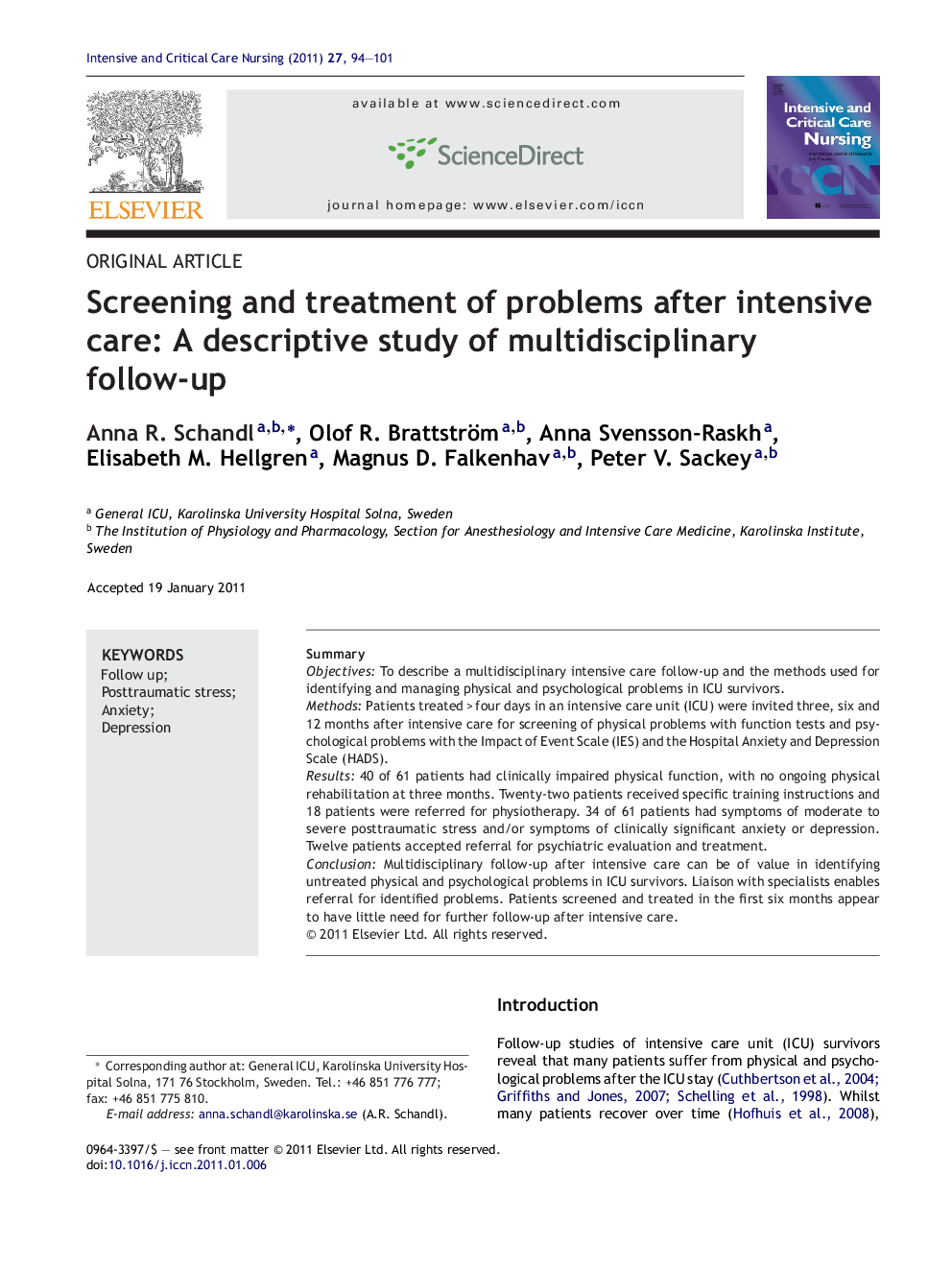| Article ID | Journal | Published Year | Pages | File Type |
|---|---|---|---|---|
| 2653361 | Intensive and Critical Care Nursing | 2011 | 8 Pages |
SummaryObjectivesTo describe a multidisciplinary intensive care follow-up and the methods used for identifying and managing physical and psychological problems in ICU survivors.MethodsPatients treated > four days in an intensive care unit (ICU) were invited three, six and 12 months after intensive care for screening of physical problems with function tests and psychological problems with the Impact of Event Scale (IES) and the Hospital Anxiety and Depression Scale (HADS).Results40 of 61 patients had clinically impaired physical function, with no ongoing physical rehabilitation at three months. Twenty-two patients received specific training instructions and 18 patients were referred for physiotherapy. 34 of 61 patients had symptoms of moderate to severe posttraumatic stress and/or symptoms of clinically significant anxiety or depression. Twelve patients accepted referral for psychiatric evaluation and treatment.ConclusionMultidisciplinary follow-up after intensive care can be of value in identifying untreated physical and psychological problems in ICU survivors. Liaison with specialists enables referral for identified problems. Patients screened and treated in the first six months appear to have little need for further follow-up after intensive care.
